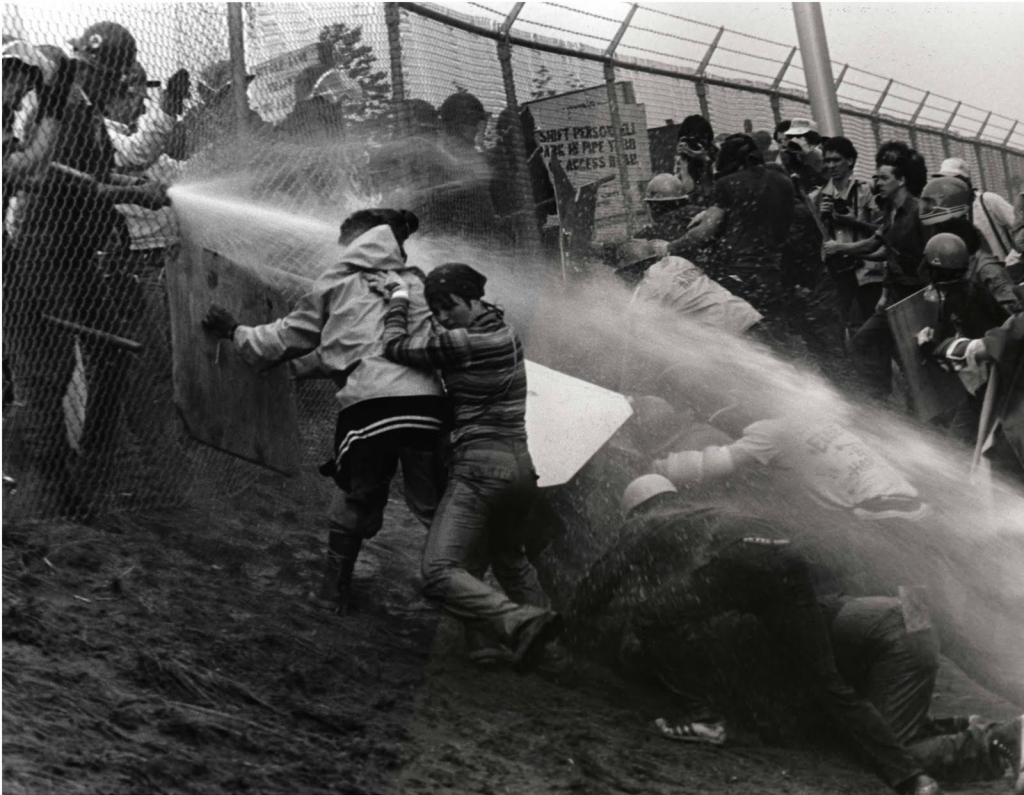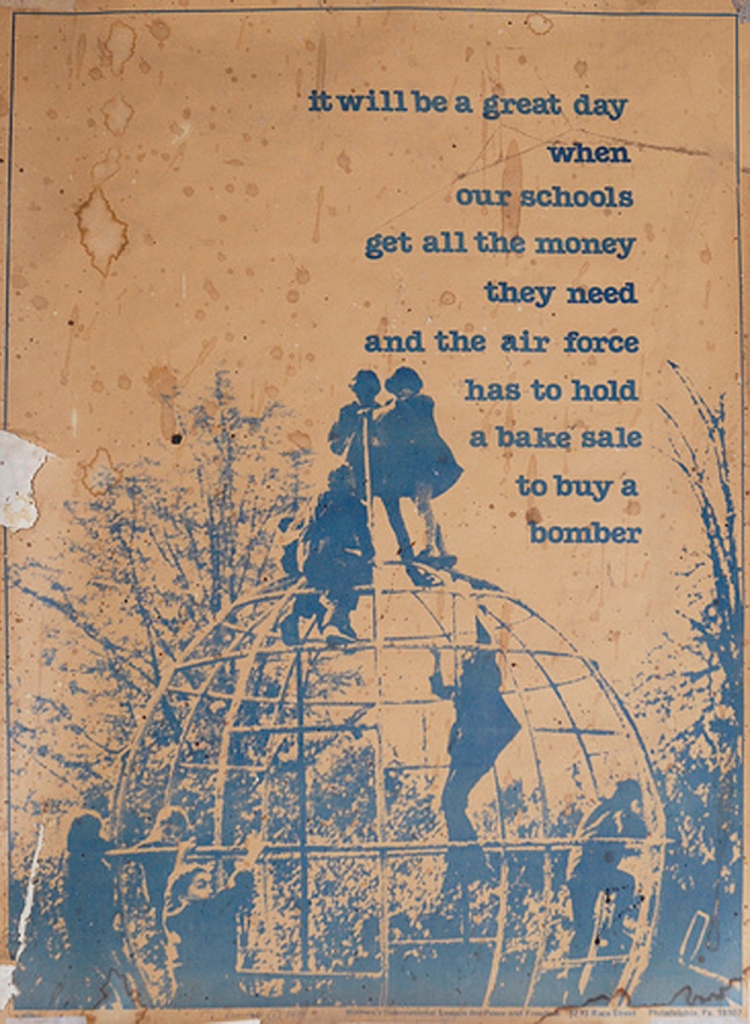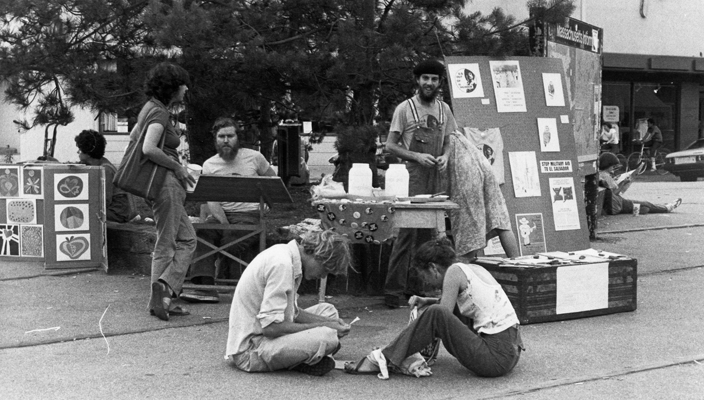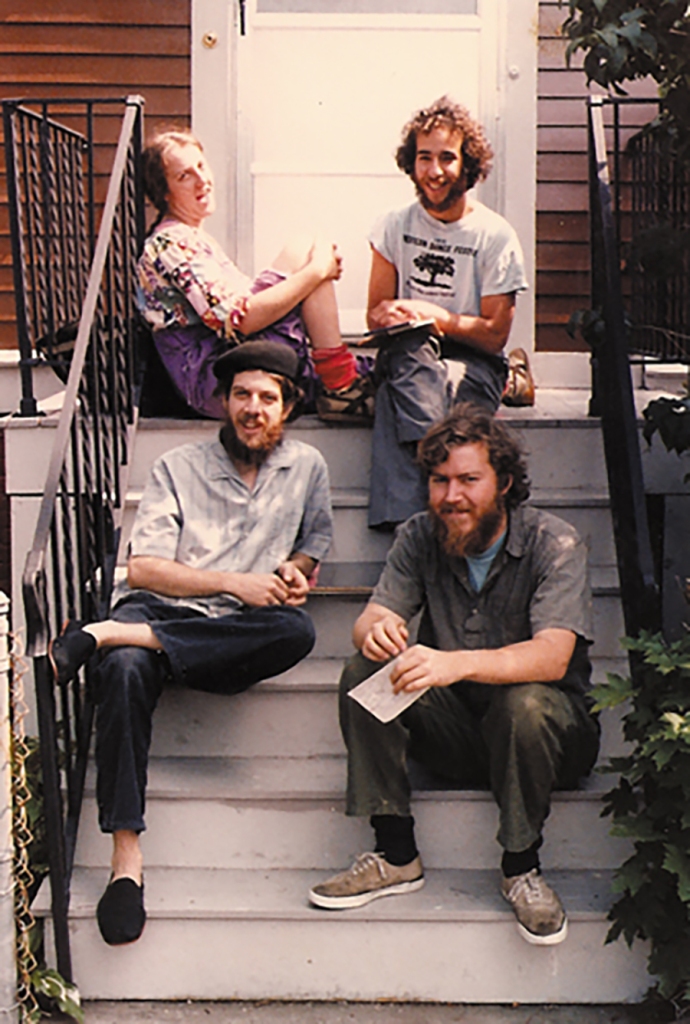THE FOUNDING OF FOOD NOT BOMBS – May 24, 1980
April 11, 2024

Bitter tear gas clawed at our eyes as National Guard clubs smashed against our frames. Several thousand arrived in this little New Hampshire town intent on gaining access to the Seabrook Nuclear Power Station construction site to stop the nuclear power station from going on line.
That sunny spring morning Boston University Law Student Brian Feigenbaum stood before the local media as whiffs of white acrid gas drifted in the background blurring the view of the main gate and the hundreds of State Police and Guardsmen guarding the Public Service Company’s investment.
Brian outlined the dangers to downwind Boston and intentions of the Coalition for Direct Action at Seabrook and our May 24th Occupation Attempt.
After several failed attempts to breech the high chain link fences hundreds of us retreated to the warm asphalt entrance outside the facility.
Brian and his friends were chatting when a half dozen riot police waded through the crowd, lifted him to his feet and cuffed him whisking him off to jail.
Brian’s friends rushed off in pursuit. We got the impression that he was picked as an example since he was one of the few of us who could be identified because of his TV appearances. In those days we never came to protests with an ID and it was common when arrested to use names like Alexander Berkman or Emma Goldman.
A substantial amount would be required to make bail. Fortunately one of us knew of a man of means who was able to loan us enough to win his freedom.
That evening as six of us chugged south in our old van towards home in Cambridge we bounced ideas on future protests and discussed possible ways to pay back our benefactor. Bake sales rose to the top of the list.
As to be expected that was not very lucrative. We also ran an informal moving company called Smooth Move. A family we were moving was tossing out a copy of that famous poster,”It will be a great day when our schools get all the money they need and the Air Force has to hold a bake sale to buy a bomber” and we at once knew what to do.
So we headed off to the army navy surplus store in Central Square to buy uniforms. We set up again in Harvard Square with our poster and pastries but this time we brought the cardboard backed poster dressed as soldiers and pretended that we were raising money to buy a bomber. While we didn’t really make much more cash we did notice that many more pedestrians visited, giving us a chance to educate them about the nuclear industry.
Meanwhile I was delivering my unsold leftover produce from my job at Bread and Circus to the mothers at the Portland Avenue public housing projects. One morning they excitedly pointed out that the glass office building at the end of the block had finally opened, reporting that it was a laboratory that designed nuclear weapons. It was Draper Lab and sure enough they were working on the guidance systems for intercontinental nuclear weapons. What a symbol of misdirected priorities and at a time when Ronald Reagan was promising to cut social services and increase military spending. Families needing food on one side of the street while those with money were busy designing guided bombs and the idea for the name Food Not Bombs was born.
The May 24th action at Seabrook Nuclear Power Station and our inability to occupy the site led us to the idea of bringing the protests to the doorsteps of those profiting from the project. Top on that list was the First National Bank of Boston and its board members. Their next stockholders meeting was scheduled for a month after President Reagan’s inauguration on March 26, 1981 at the Federal Reserve Bank across from South Station.
We set out to organize a theatrical soup line on the Atlantic sidewalk so those entering the stockholders meeting would see a line of Depression Era hobos waiting for soup. Our message on our literature was both against the nuclear projects pushed by these bankers but also in opposition to local investment policies that created areas of neglect and poverty. The banks board was well represented by the CEOs of military contractors and would be reaping in huge profits from the new administration’s proposed increase in military spending.
The night before the lunch action we realized we had done a poor job of recruiting friends to play hobo so I went to the old Pine Street Inn to see if the men staying at Boston’s Depression era homeless shelter would be interested in joining the protest. Several remarked that they hadn’t been to a protest since the Vietnam War and expressed an interest in joining our performance against the bankers.
Our Smooth Move van sidled up to the curb below the towering silver Federal Reserve Bank. We set up our saw horse and plywood table and slid a huge pot of steaming hot vegan stew. Our supporters from the homeless shelter ambled up. I oriented the quickly assembled participants in a line along the sidewalk. One by one they stepped up to receive their cup of warmth. “God bless you,” the first in line whispered.
An angry blue hair pearls gave us the middle finder as she stomped towards the Fed doors. Another stockholder thanked us sharing she was on her way to vote on some issue facing the bank. A young businessman who had just departed one of the South Station trains stopped to speak with us expressing amazement at the sight of a soup line, “Wow, Reagan has only been in office a month and there are already soup kitchens.”
The guys and one woman who ate with us asked us to share food everyday. They had no access to food all day long until their donuts and coffee back at the Pine Street Inn. So that evening while cleaning up from the day we agreed this had to be one of the most magical days any one of us had ever experienced. Without hesitation we all decided to quit our jobs and spend our days recovering groceries, making deliveries to local housing projects, and sharing vegan meals on the streets.
Thus Food Not Bombs was born.
Forty-four years later Food Not Bombs has grown to an all volunteer global movement sharing meals and groceries in over 1,000 cities in nearly 70 countries.


